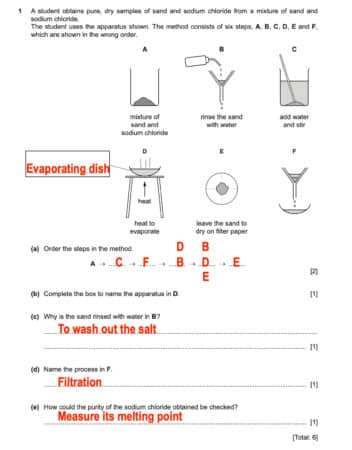
Chemistry Past Papers IGCSE by CIE
You will find Chemistry Past Papers IGCSE by CIE on various sites on the Internet. These past papers are categorized according to topic and marking scheme. You can use them to learn more about the exam. The previous papers will allow you to understand the topics and answer the questions more clearly. These resources will also allow you to compare your knowledge with the question paper and see where you need to improve. These resources can help you achieve the best grades possible!
In addition to past papers, you can find sample questions to help you prepare for the upcoming examination. You should also know that GCSE Chemistry does not have a practical exam. To take the practical examination, you will need to obtain a certificate from the exam centre. Most examination centres will not give certificates to external candidates, so you can only get the certificate from the exam centre. In addition, you can get the answers to questions that have been asked before in past papers.
The IGCSE chemistry exam is a tiered system. There are two tiers for the exams: core and extended. For the less capable students, the core tier contains papers 1, 3 and 6 and has a maximum grade of C or 5. The higher tier, the alternative, has papers 2, 4, and 6 and has a grade range of 9-1. The Cambridge syllabus consists of three papers: a 1hr 15 minute theory paper and two half-hour alternative to practical exams.
The syllabus for the IGCSE in Chemistry is a tiered syllabus. There are two main tiers for the IGCSE. The core tier is for less capable students. It includes papers 1, 3 and 6. The grade range for the extended tier is 9-1. For more capable students, they can opt for the extended / advanced tier. However, the syllabuses differ considerably. You must choose one of them, according to your capabilities.
The IGCSE in Chemistry is a tiered syllabus. It has four core papers and six extended papers. The extended tier is the most difficult, but it requires a higher grade than the core tier. It is better to have a comprehensive set of past papers for the higher tiers. So, you can check out the syllabuses of the IGCSE and IA level in Chemistry to improve your grades and prepare for the exam.
The IGCSE in Chemistry has tiered specifications. The core tier is for less able students, and the extended tier is for more able students. In addition to past papers, there are also past papers for the core and extended spec. You can use these to study for the exams. The IGCSE in Chemistry is an important subject for the IGCSE in the UK, and it is important for your child to be familiar with the content. You can also purchase supplementary resources for the IGCSE curriculum.
You can also use IGCSE Chemistry past papers to study for the IGCSE. IGCSE Chemistry is not a practical exam. To be able to take the exam, you need to study all of the relevant material. For instance, you need to know the structure of the syllabus and the chemistry core. The syllabus for IGCSE is not very complex. If you want to know how to answer the questions on the exam, you need to understand the structure of the examination.
The IGCSE syllabus for Chemistry is tiered. You can choose to do the lower tier, which is for less able students. You can then practice for the higher tier. This way, you will be able to see if you’re getting enough marks in the exam. You can use the IGCSE syllabus and see how your child does better than the original. You can also choose to take the higher tier, which has more demanding papers.
For IGCSE exams, the syllabus is not the same for both tiers. For IGCSE, you can take a paper that is from a different exam board. You can also use these past papers to help your child prepare for the exam. Make sure to make copies of the past papers that you need. You will be surprised at how much information is available for the IGCSE. It will give you a better understanding of the exam and what your child needs to do in order to get the highest grade.
Chemistry Past Papers IGCSE by CIE


Comments (0)